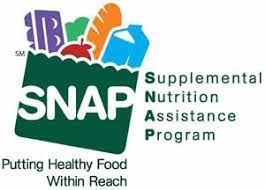Federal Work Requirements (ABAWD Time Limits) for SNAP benefit recipients are back; what does this mean for Oregon’s vulnerable populations?
Federal Work Requirements (ABAWD Time Limits) for SNAP benefit recipients are back; what does this mean for Oregon’s vulnerable populations?
The federal food
stamp program, officially known as Supplemental Nutrition Assistance Program
(SNAP), serves millions of low-income households nationwide. These low-income
recipients are mostly families with children, the elderly & the disabled,
and homeless individuals. For Oregon, this translates into approximately 680k
Oregonians who rely on SNAP on monthly basis to feed their families. However, as
of July 1st, 2023, the Oregon Department of Human Services (ODHS) is
bringing back a federal program, ABAWD, that puts time limits on how long
people can receive SNAP in a 3-year period. The fear is that this will exacerbate
the situation for an already less-food secure vulnerable Oregonians who are dealing
with inflation and high cost of living like food, rent, and other basic needs.
ABAWD stands for Able-Bodied Adults Without Dependents, and
as of July 1st all Oregon SNAP recipients and new applicants must participate
in work activities in order to get and keep receiving SNAP benefits unless they’re
exempt. Generally, the program is for
people who have no dependents and aged between 18 to 49. The program was suspended
back in April of 2020 due to the Federal Public Health Emergency (PHE) surrounding
the COV-19 pandemic, so all recipients were exempt until it was reinstated last
month because of the end of the PHE period.
However, a lot of Oregonians are exempt from ABAWD, and many do not know and/or do not have the means to or the capacity to advocate for themselves; this is true for many in the homeless populations. ODHS has mailed thousands of notices letting know to contact the agency for ABAWD screening - to see if they qualify for an exemption or register for program activities. Nevertheless, many Oregonians, especially houseless people, do not have reliable mailing addresses or working phones they can access or be reached at. This results in penalties being applied on their benefits, which ultimately only qualifies them for 3 months in 36 months, or 3 years, period.
Here are the potentially exempt Oregonians
under the ABAWD program. I say potential because the rules change all the time,
so please ask Oregon DHS worker, or call/visit to local social services office to see
if you qualify. There are several more exemptions, but these are the main
highlights.
1. If you have dependents in your household (minors
under 18 yrs. old)
2.
Disabled (mental, physical, and behavioral health
challenges)
3.
Student at least halftime, undergrad, HS,
vocational training etc.
4.
Working or self-employed.
5.
Pregnant
6.
Participating in drug & alcohol program
7.
Receiving unemployment
8.
You live in an exempt county.
Oregonians can still receive SNAP benefits, even for those
whose situations don’t fit the exemption criteria above. It is important to note that Oregonians can call and ask Oregon DHS what exemptions they qualify or the requirement they need to fulfill so they can get their
benefits. For advocacy and resources, 211, Partners for Hunger Free Oregon, and
Oregon Food Bank are all good starting points.
To read more, visit Oregon DHS website at =è Oregon
Department of Human Services : SNAP Time Limits : Food Benefits : State of
Oregon
Informational flyer explaining ABAWD rules, exemptions, and next steps. =è PowerPoint
Presentation (oregon.gov)
Oregon Worksource SNAP and Employment Training Program =è STEP (worksourceoregon.org)
Partners for Hunger Free Oregon ==è ABAWDS - Partners for a Hunger-Free
Oregon (oregonhunger.org)
By Naem Mohamed



Comments
Post a Comment